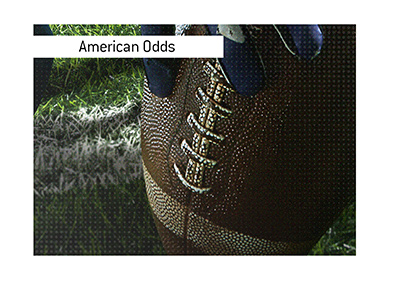What Do The Betting Odds Mean
Welcome to the Sports Betting Odds section of The Sports Geek. If you are new to sports betting and don’t understand how to read betting odds (+150, -110, +2200, etc) we will lay it all out for you and help you learn how the betting odds work.
Betting Site | Bonus | Bet Now | |
|---|---|---|---|
| 1 | up to €30 Free Bet | Go to Site | |
| 2 | 22Bet | 100% up to €122 | Go to Site |
| 3 | 100% up to €200 | Go to Site | |
| 4 | 10Bet | 100% up to €50 | Go to Site |
| 5 | 100% up to €50 | Go to Site |
- These numbers all mean the same thing - just expressed differently. In short - if you see a 'minus' symbol before a set of odds, this means that the team (or person in an individual sport) is a favourite to win. If you see a 'plus' symbol before a set of odds, this means that the team (or person) is an underdog to win.
- Betting odds of 4/1 would equate to 5.0 in decimal terms, 5/1 would be 6.0, and so forth. See the chart below for a breakdown of betting odds in both fractional and decimal format, showing forecasted returns to £5 level stakes for the key prices in a market.
Click to Unmute. This opens in a new window. The magic number in sports betting is -110 because it defines the amount required by a sportsbook to earn $100 on either side of most wagers. A bettor must lay $110 to win $100 when wagering on point spreads, which are set by oddsmakers with hopes of getting equal action on both sides.
Sports Betting Odds Explained
Many people don’t know how to read or calculate sports betting odds, so below we have done our best on explaining how betting odds work. The most common type of sports betting odds used in North America are the American style odds which we explain below.
American Style Sports Betting Odds
Most online sportsbooks will list their odds in what is called “American Odds”. There are a couple different versions of sports betting odds, but these American Odds are the most common odds used. Reading and understanding sports betting odds can bet a little confusing to beginners, so we have provided an example below using two NFL football teams:
American Odds
- Matchup Odds
- New England Patriots +120
- Pittsburgh Steelers -140
The number shown in the bracket represents the odds. The American Odds have two components to them, the first being the positive or negative sign, and the second being the number that follows the sign.
The sign in front of the number indicates whether placing a wager on that outcome will pay out more money then you have wagered or less money then you have wagered. If the odd is negative (-) it means that outcome is more likely to happen and placing a bet on that outcome would payout less than the amount you wagered, while a positive (+) odd shows that the outcome is less likely to happen and it would pay out more than the amount you wagered.
The next step is figuring out exactly how much the bet pays out, which is where the numbers in the odds come into play.
A listed odd with a – sign in front of it, such as the -140 in our example above, shows us how much money you would need to wager in order to win $100. So using the -140, this would show us that you would need to bet $140 in order to win $100 in profits. You can easily substitute the $100 bet for a $10 bet by moving the decimal place over one spot, showing us that you would need to wager $14 in order to win $10 in profits.
What Does Odds Mean
Examples:

A listed odd with a + sign in front of it, such as the +120 in our example above, shows us how much money you would win on a $100 bet. Using the +120 odds, it shows us that a $100 bet on that outcome would pay out $120 in profits. Again this can easily be converted into smaller or larger size bets. A $10 bet on +120 odds would pay out $12 in profits.
Examples:
Below is an example of NFL betting odds taken from an online betting site.

Betting Odds Nfl
In this example you can see Los Angeles is listed at +130 ($100 bet pays $130 plus of course your original wager back) and New England is listed at -150 ($150 bet pays $100).
The great thing about betting online is that the online sportsbooks will do the calculations for you before you place your bet. You can click on the outcome or team you would like to bet on, and then input the amount you wish to wager and it will show you your potential pay out before you confirm your bet.
Ready To Start Betting?MyBookie and BetUS are my two favorite sportsbooks and make betting very easy. You will also get a Free Money Bonus at each sportsbook if you follow either link above.
Decimal Style Sports Betting Odds
Decimal style odds are used mostly in Europe, and are pretty easy to understand. To calculate the decimal style odds all you will need to do is simply multiply the amount you wish to wager by the decimal odds shown and you will get your payout. For example it may look something like this:
If you wanted to place a $10 wager on the USA at 2.40 you would simply need to multiply your $10 wager by the 2.40 odds (10 x 2.40) to find out that the payout is $24. It is important to realize that with decimal style odds it includes the amount you wagered, so to find out profits you would need to subtract your wager ($24 – $10) to find out your potential payout is $14 in profits.
If you wanted to place a $10 wager on Brazil you would again just multiply $10 x 1.55 to find out that you would win $15.50 total or $5.50 in profits.
Decimal style betting odds are very simple to understand, but you won’t see them displayed in many North American sportsbooks. With that said, most online betting sites will allow you to chose the style of betting odds you want displayed, with American odds set as the default.
As a fan, you don’t care if your team wins by a point or 100. A win is a win, though that 100-point win would be a little easier on the nerves.

In sports betting, how much a team wins by is usually all that matters.
The most popular way to bet for the two most popular sports, basketball and football, is with the point spread, also known as the “side.” Most baseball, hockey and soccer bets are on the moneyline, which is betting on a team to win straight up with adjusted odds. Football and basketball have moneyline bets available too, but most people will take the point spread.
The concept can be a bit confusing if you’ve never dabbled in sports betting before.
Why bet with the point spread?
The point spread was created to attract more action on a game. When the San Francisco 49ers are expected to blow out the Arizona Cardinals, it’s not enticing to lay $300 to win $100 on a moneyline. But when the 49ers are 11-point favorites and each side is -110 odds? That’s much easier.
In that example, the 49ers are spotting the Cardinals 11 points before the game starts, at least for bettors. The 49ers have to win by 12 or more points to cover the spread. If the Cardinals win or lose by 10 or less, that side wins the bet. If the game lands on 11, like a 21-10 49ers win, it’s a push and all bets are refunded. If you see a -11 that means that team is favored, and +11 means you’re taking the underdog.
Nothing sharpens your math skills better than trying to figure out how big your lead as a bettor is if you have a 22.5-point basketball underdog that is losing 90-72.
The problem with the point spread can be when a team — which really doesn’t care that you bet the favorite at -11 — has a 14-point lead but gives up a meaningless score at the end to win by only seven points. They’re still happy with the win. You, as a bettor, are not.
© Provided by Yahoo! Sports Sportsbooks have large boards that display point spreads for all games that day. (AP Photo/John Locher, File)Point spreads lead to bad beats
The most infamous example of a bad beat with the point spread probably came in the 2004 Final Four at the NCAA men’s basketball tournament.
Duke was a 2.5-point underdog against UConn. The Huskies rallied late and took a 79-75 lead on a free throw with 3.2 seconds left. The game itself was over; Duke couldn’t score twice in a few seconds. But Duke guard Chris Duhon pulled up for a running 3-pointer just over the half-court line and banked it in at the buzzer. Duke lost 79-78, but bettors who had Duke and 2.5 points won. March Madness is a huge event for bettors, and reports at the time estimated that Duhon’s “meaningless” shot resulted in a $30 or $40 million swing in Nevada. UConn players celebrated at the final buzzer. UConn bettors doubled over in pain. That’s the difference between betting the moneyline and the point spread.
Baseball and hockey have point spreads too, the “run line” in baseball and “puck line” in hockey. It’s generally 1.5 with odds adjusting accordingly. Taking a big baseball favorite at -1.5 runs can make the odds more palatable. Of course, betting the New York Yankees at -1.5 to bring down the odds from -190 to -110 isn’t too fun when they win 4-3 and you don’t cash a bet.
Betting on the point spread is the most common way to wager on sports. And the first time you take a favorite that wins the game but doesn’t cover the spread, you’ll understand every bettor’s heartbreak.